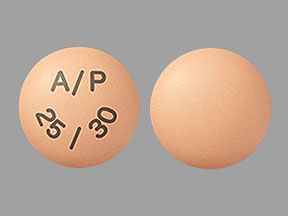
Alogliptin-pioglitazone Coupons & Savings Card – Discount Prices from $333.75
Generic for: Oseni
My prescription
Edit
25-30MG, Alogliptin-pioglitazone (90 Tablets)
Select pharmacy

CVS
$333.75
COUPON PRICE
Albertsons
$529.52
COUPON PRICE
Walmart
$568.61
COUPON PRICE
Walgreens
$592.36
COUPON PRICEAlogliptin-pioglitazone savings card
Show this card to your pharmacist
CVS
$333.75
BIN
ID
PCN
GRP
019876
LHF6D777F6
CHIPPO
LHX
Powered by
More prescriptions for diabetes type 2
More prescriptions for diabetes type 2
Price history for Oseni (brand) & Alogliptin-pioglitazone (generic)
90 Tablets, 25-30MG
Average retail price for Oseni
Average retail price for Alogliptin-pioglitazone
Average SaveHealth price for Alogliptin-pioglitazone
Our price history data is based on aggregated prescription data collected from participating pharmacies in America. Our prescription data updates daily to reflect the latest price changes. If you notice a missing data point, it means there wasn't sufficient data available to generate a monetary value for that date.
We analyzed Alogliptin-pioglitazone prices for (25-30MG, 90 Tablets) over the last 12 months. The average retail price was $748.71, while the average price using the SaveHealth discount card was $491.05. That's a savings of approximately 34.41% when using our Alogliptin-pioglitazone coupon.
Compared to the generic version, Oseni had an average price of $520.10 over the same time period. With the SaveHealth savings card, Alogliptin-pioglitazone is 5.59% cheaper on average than Oseni.
*Retail prices are based on pharmacy claims data, and may not be accurate when we don't have enough claims.
Alogliptin-pioglitazone dosage forms
Dosage Quantity Price from Per unit 12.5-15MG 30 Tablets $49.62 $1.65 12.5-30MG 30 Tablets $120.78 $4.03 12.5-45MG 30 Tablets $183.42 $6.11 25-30MG 90 Tablets $333.75 $3.71 25-15MG 30 Tablets $120.78 $4.03 25-30MG 30 Tablets $120.78 $4.03 25-45MG 30 Tablets $120.78 $4.03
| Dosage | Quantity | Price from | Per unit |
|---|---|---|---|
| 12.5-15MG | 30 Tablets | $49.62 | $1.65 |
| 12.5-30MG | 30 Tablets | $120.78 | $4.03 |
| 12.5-45MG | 30 Tablets | $183.42 | $6.11 |
| 25-30MG | 90 Tablets | $333.75 | $3.71 |
| 25-15MG | 30 Tablets | $120.78 | $4.03 |
| 25-30MG | 30 Tablets | $120.78 | $4.03 |
| 25-45MG | 30 Tablets | $120.78 | $4.03 |
Alogliptin-pioglitazone Warnings
This medication contains alogliptin and pioglitazone, which can present certain risks and require careful consideration before use. Please review the following safety information and consult your healthcare provider with any concerns.
Heart Issues: This medication may lead to or aggravate existing heart failure. Symptoms to watch for include shortness of breath, ankle or foot swelling, unusual fatigue, or rapid weight gain. Those with heart failure should inform their doctor before starting this medication, and immediate medical attention is advised if symptoms of heart failure arise.
Pancreatic Concerns: In rare cases, alogliptin may cause pancreatitis, marked by upper stomach pain, fever, nausea, and vomiting. Contact your healthcare provider immediately if these symptoms occur.
Allergic Reactions: Serious allergies are possible, especially for those with a history of reactions to gliptins. Symptoms include rash, skin peeling, swelling, difficulty breathing, and dizziness. Seek medical help right away if these occur.
Liver Health: While not definitively linked, there have been reports of liver issues. Symptoms such as extreme fatigue, weight loss, abdominal discomfort, dark urine, or yellowing of the skin or eyes warrant prompt medical evaluation. Regular liver function tests may be necessary.
Bone Fractures: Pioglitazone may increase the risk of fractures, particularly in women. Discuss bone health with your healthcare provider before starting this medication.
Vision Problems: Report any visual disturbances such as cloudy or blurry vision to your healthcare provider, as diabetes and this medication can both affect eyesight. Regular eye exams are recommended.
Joint Pain: Severe joint pain has been associated with medications like alogliptin. If you experience joint discomfort, consult your healthcare provider as it typically resolves after discontinuation of the medication.
Severe Skin Reactions: Alogliptin may cause severe skin reactions, including blisters or sores. Discontinue use and seek medical advice if these occur.
Contraindications:
- Do not use this medication if you have a history of severe allergic reactions to its components or have moderate to severe heart failure (class 3 or 4).
If you experience any adverse effects or have any questions regarding this medication, please contact your healthcare provider immediately.
Alogliptin-pioglitazone Side Effects
Common side effects:
- Sore throat
- Stuffy nose
- Symptoms of the common cold
- Upper respiratory infection (cough or runny nose)
- Back pain
- Headache
- Muscle pain
- Weight gain
Less common but important to monitor:
- Low blood sugar (shakiness, fast heartbeat, sudden sweating, hunger, blurred vision)
- High blood sugar (increased thirst and urination)
Serious side effects:
- Worsening heart failure (shortness of breath, unusual swelling, tiredness, or sudden weight gain)
- Liver problems (fatigue, poor appetite, dark urine, yellowing of the skin or eyes)
- Pancreatitis (severe stomach pain, fever, nausea, vomiting)
- Severe allergic reactions (rashes, blistering skin, trouble breathing, swelling)
Alogliptin-pioglitazone Interactions
Interactions with moderate risk that may require dose adjustment, closer monitoring, or timing changes:
- Metoprolol
- Propranolol
- Timolol
